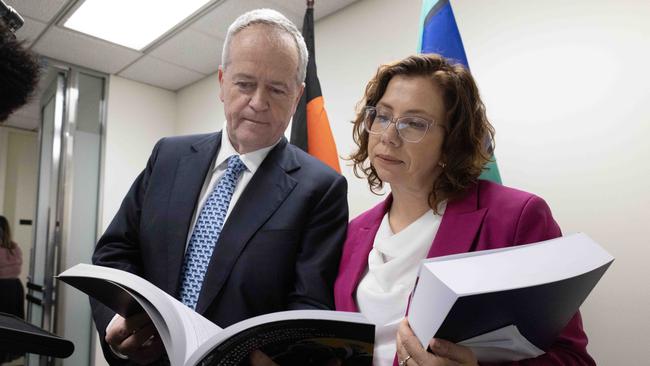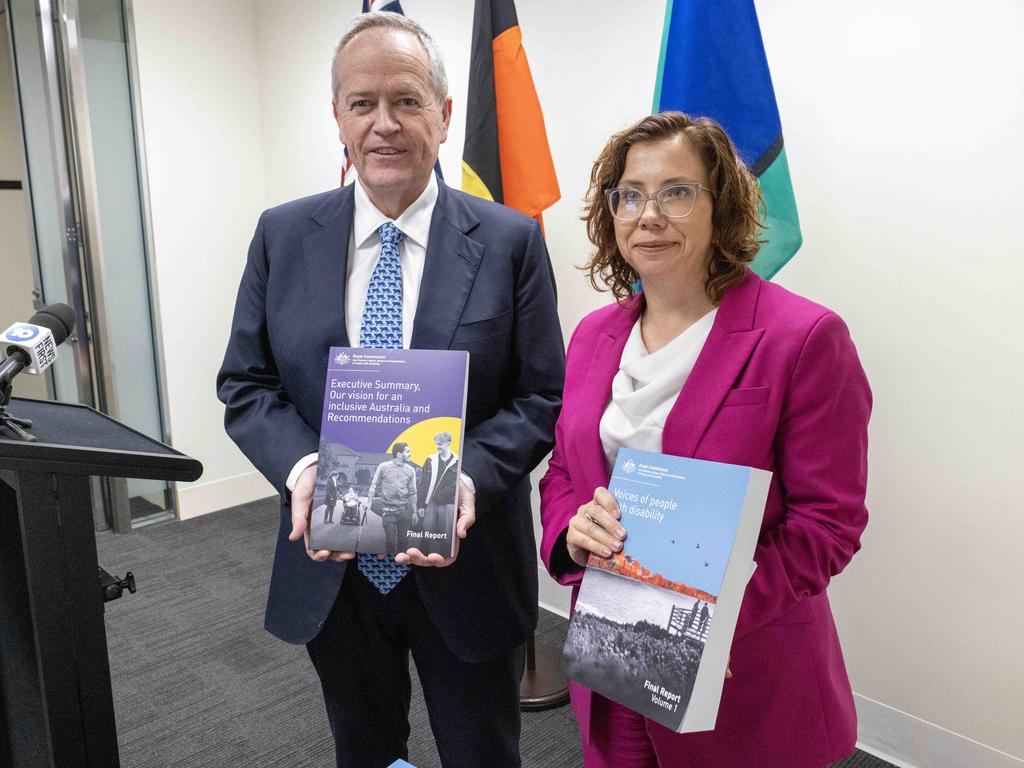Advocates call for ‘more ambition’ in ending segregation for people with disabilities
Disability advocates say they are disappointed by the split between Royal Commissioners on key areas of reform, calling for more ambition and set time-frames in which to implement change.

Disability advocates say they are disappointed by the split between royal commissioners on key areas of reform outlined after a four-and-a half year investigation into the abuse, neglect and discrimination experienced by disabled Australians, calling for “more ambition” and set time frames in which to implement change.
Labor on Friday announced it would set up a taskforce to assess the 222 recommendations made by the Disability Royal Commission, which included enacting a new Disability Rights Act, creating a National Disability Commission, phasing out special schools and group homes, and setting up a new portfolio for disability.
Social Services Minister Amanda Rishworth declared “it would be disingenuous to suggest the government could respond quickly” to a final report of such magnitude.
“We need to make sure we consider all recommendations thoroughly … and we need to make sure that whatever is the government's response, we can also implement it,” she said in Adelaide.
While many of the recommendations were unanimous, the commissioners did not all agree on reforms such as scrapping group homes, phasing out special schools and creating a National Inclusive Employment Roadmap.
While commissioners Barbara Bennett, Rhonda Galbally and Alastair McEwin said they believed special schools entrenched segregation, the other three commissioners said it was “not appropriate” to phase out non-mainstream schools.
And while four of the six commissioners backed a road map for inclusive employment, Commissioner John Ryan and chair Ronald Sackville said recommending the public sector pay full wages to people with disability within 10 years would be a “disincentive to their employment”.
Down Syndrome Australia backed the creation of a National Inclusive Employment Roadmap, as chief executive Darryl Steff criticised the divide between commissioners on significant reforms.

“DSA is disappointed that there was a split in the commissioners’ recommendations to end segregated education and employment given the evidence before the commission that is backed by international research,” he said.
“The royal commission has shown that segregation is a form of discrimination that is harmful and must end. The first major steps Australian governments can commit to is ending the harmful separation of people with disability in classrooms and workplaces.”
Under the 28-year plan to end segregation in education, no new special schools or units would be set up from 2025 and no disabled students would be in special schools by 2051.
Children and Young People with Disability Australia chief executive Skye Kakoschke-Moore said there was a need for a “more ambitious plan” to end segregated education.
“The proposed 28-year road map will condemn another two generations of children into a system where segregation prevails and inclusion does not,” she said.
“Protecting the right of children with disability to learn alongside their peers in mainstream classrooms is about shaping a society that genuinely embraces diversity and inclusion from the earliest ages.”
Greens disability spokesman Jordan Steele-John agreed such long time frames for change were “widely inadequate” and criticised the government for only committing to propping up a taskforce.
“The Disability Royal Commission Report has uncovered the scale of the discrimination, abuse and segregation experienced by disabled people every day. An inter-department taskforce isn’t going to cut it,” he said.
NDIS Minister Bill Shorten said the royal commission represented “a moment of national unity”.







To join the conversation, please log in. Don't have an account? Register
Join the conversation, you are commenting as Logout